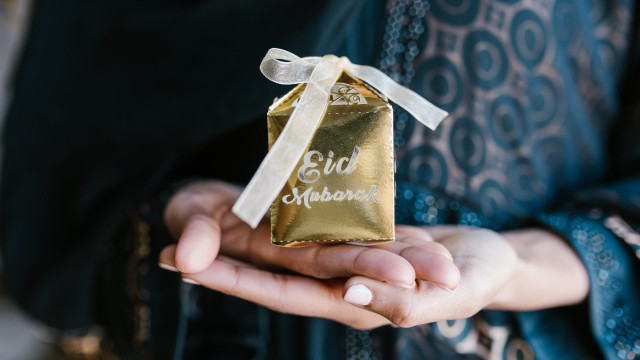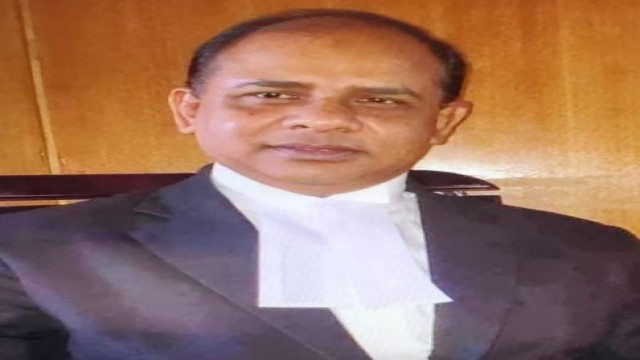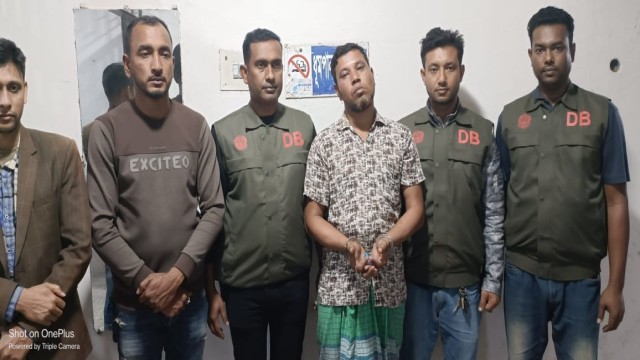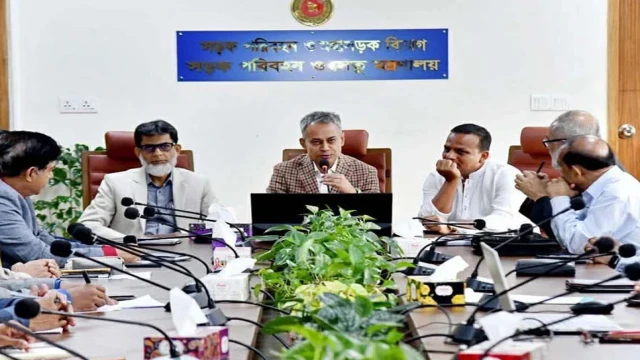Dhaka, Mar 31 (V7N) - The global tapestry of Islamic celebrations is rich and vibrant, marked by moments of profound spiritual reflection and exuberant communal joy. Among these cherished occasions, Eid ul-Fitr, the "Festival of Breaking the Fast," shines brightly as one of the most significant and universally embraced celebrations in the Islamic calendar. This joyous festival marks the highly anticipated culmination of Ramadan, a sacred month of intense fasting, dedicated prayer, rigorous self-discipline, and profound acts of charity. For Muslims across the continents, Eid ul-Fitr is a time of profound spiritual fulfillment, where communities unite in harmonious celebration, expressing heartfelt gratitude to Allah (God) for the strength and guidance bestowed upon them during the holy month. It is a day filled with acts of kindness, expressions of love, and the strengthening of bonds that tie the global Muslim community together. The air is thick with anticipation and joy as families and friends prepare to partake in festivities that have been eagerly awaited, a testament to the spiritual triumph achieved through the discipline of Ramadan.
The religious significance of Eid ul-Fitr is deeply rooted in the teachings of Islam and the traditions of Prophet Muhammad (peace be upon him). This blessed occasion is viewed as a divine reward for the faithful who have diligently observed the month of Ramadan, abstaining from food and drink from dawn till dusk, engaging in extra prayers, reciting the Holy Quran, and striving to improve their character and conduct. The successful completion of this month-long spiritual journey is met with immense gratitude and the joyous celebration of Eid. The Prophet Muhammad (SAW) himself emphasized the importance of Eid ul-Fitr, establishing it as a time for communal prayer, acts of generosity towards the less fortunate, and a sincere expression of thanksgiving to Allah for His countless blessings. It is a day specifically set aside for rejoicing in the completion of a significant religious obligation.
The day of Eid ul-Fitr commences with a special congregational prayer known as Salat al-Eid, typically performed in the morning in large open fields or at mosques. This prayer holds immense significance as it brings together the community in a collective act of worship and gratitude. Before the Eid prayer, Muslims are obligated to pay Zakat al-Fitr, a form of charity specifically designated for the poor and needy. This act of giving ensures that everyone within the community, regardless of their financial circumstances, has the means to partake in the Eid celebrations and experience the joy of the festival. Zakat al-Fitr embodies the core Islamic values of social justice, compassion, and the importance of caring for the vulnerable members of society. It serves as a reminder that the blessings received during Ramadan should be shared, and that the spirit of unity and generosity should extend to all.
The observance of Eid ul-Fitr is a vibrant tapestry woven with diverse cultural threads, yet united by common religious practices. On the morning of Eid, Muslims around the world awaken with a sense of anticipation and joy. They perform ghusl, a ritual purification, symbolizing spiritual cleanliness and renewal. Dressed in their finest attire, often new clothes purchased specifically for the occasion, they make their way to the designated prayer grounds or mosques for the Salat al-Eid. The prayer itself consists of two rak'ahs (cycles of prayer) and includes additional takbirs (declarations of the greatness of Allah). The provided text in Bengali details the specific intention (Niyyat) for the Eid prayer: "I intend to offer two rak'ahs of Eid ul-Fitr prayer with six additional takbirs, which is obligatory for the sake of Allah the Exalted, following this Imam, facing the direction of the Holy Ka'bah, Allah is the Greatest." The text also outlines the steps of the prayer, including the initial Takbir-e-Tahrimah, the recitation of the Thana (a supplication), followed by three additional takbirs in the first rak'ah, with hands raised and then released during the first two, and bound during the third. The recitation of Surah Al-Fatiha and another Surah follows, leading into the regular bowing (Ruku) and prostration (Sujud). The second rak'ah involves the recitation of Surah Al-Fatiha and another Surah, followed by three additional takbirs with hands raised and released, and then a final takbir before going into Ruku and Sujud, concluding with the Tashahhud, Durood, and Dua Masura before the final salutations (peace be upon you).
Following the prayer, the Imam (prayer leader) delivers a sermon (Khutbah), which typically emphasizes themes of gratitude, unity within the Muslim community, and the importance of upholding the values learned during Ramadan in the months to come. After the sermon, Muslims exchange heartfelt greetings of "Eid Mubarak," meaning "Blessed Eid," and "Taqabbal Allahu minna wa minkum," which translates to "May Allah accept our deeds and yours." This exchange of greetings fosters a strong sense of brotherhood and sisterhood within the community, reinforcing the bonds of faith and unity. Families and friends then embark on visits to each other's homes, where they share hugs, exchange gifts, and indulge in a variety of traditional sweets and delicacies.
The culinary aspect of Eid ul-Fitr is a significant part of the celebration, with households preparing elaborate feasts featuring traditional foods and an array of delectable sweets. Dishes like Sheer Khurma, a rich and creamy sweet vermicelli milk dessert infused with dates and nuts, are a staple in many South Asian households. Baklava, with its layers of flaky pastry and sweet syrup, and Maamoul, filled with dates, pistachios, or walnuts, are popular treats in the Middle East. In South Asia, Seviyan, another type of vermicelli dessert, and savory dishes like Biryani are often prepared and shared with family and guests. These special Eid feasts are not just about enjoying delicious food; they symbolize joy, hospitality, and the abundance of blessings bestowed by Allah.
Acts of charity and giving continue to be a central theme on Eid ul-Fitr. Many Muslims take this opportunity to further extend their generosity to the less fortunate. Donations are made to the poor, visits are paid to hospitals and orphanages to bring cheer and support, and meals are shared with those who are unable to afford them. In numerous countries, community feasts and donation drives are organized, ensuring that the spirit of Eid reaches every corner of society and that everyone, regardless of their financial standing, can experience the joy and blessings of the festival. This emphasis on charity underscores the Islamic principle of social responsibility and the importance of caring for one's fellow human beings.
The celebration of Eid ul-Fitr, while unified by core religious practices, also showcases a beautiful array of cultural variations around the world. In the Middle East, the festivities often involve grand feasts, extensive family gatherings that can last for several days, and vibrant displays of fireworks that light up the night skies in major cities like Dubai, Riyadh, and Cairo. In South Asia, particularly in countries like Bangladesh, India, and Pakistan, special dishes like Seviyan are a must, and children eagerly await receiving Eidi, which are small amounts of money or gifts from elders. Large community prayers are a common sight, fostering a strong sense of collective identity. In Turkey, Eid ul-Fitr is known as Şeker Bayramı, or the Sugar Feast, a name that reflects the abundance of sweets enjoyed during this time. People traditionally visit their elders to pay their respects and receive blessings. In various parts of Africa, Eid celebrations are marked by large communal prayers held in open spaces, followed by traditional dance performances and colorful Eid processions through the streets. Even in Western countries, where Muslims may be a minority, the spirit of Eid is celebrated with enthusiasm. Mosque gatherings provide a space for community prayer and socializing, and Eid festivals are often organized, featuring cultural performances, food stalls, and activities for children. Interfaith events are also common, providing an opportunity to share the joy and meaning of Eid with people of other faiths.
The spiritual message of Eid ul-Fitr transcends the outward celebrations, serving as a profound reminder of the deeper values and lessons learned during Ramadan. It is primarily a time for expressing heartfelt gratitude to Allah for the strength, guidance, and countless blessings received during the holy month. Muslims reflect on their spiritual journey throughout Ramadan, acknowledging the opportunity for self-purification, increased devotion, and the strengthening of their relationship with God. Eid also serves as a powerful catalyst for strengthening family and community bonds. It encourages unity, forgiveness, and the reconnection with loved ones, neighbors, and the wider Muslim community. Disputes are often set aside, and efforts are made to mend broken relationships, fostering an atmosphere of peace and harmony. While Ramadan comes to an end, the values of self-discipline, generosity, and unwavering devotion that were cultivated during the month are not meant to be confined to it. Muslims are encouraged to carry forward the spiritual momentum gained during Ramadan and to continue practicing regular prayer, engaging in charity, showing kindness and compassion, and striving to live according to Islamic principles in all aspects of their lives.
In conclusion, Eid ul-Fitr is far more than just a festive occasion; it is a time for profound spiritual renewal, exuberant joy, and the widespread dissemination of goodwill. It embodies a universal message of gratitude for blessings received, unity within the community, and compassion towards all, making it a cherished festival for millions of Muslims across the globe. Despite the beautiful array of cultural differences in how Eid is celebrated, the core values of faith, happiness, and generosity bind Muslims together in a spirit of shared joy and thankfulness. The echoes of the takbirs, the warmth of shared meals, the joy of giving and receiving, and the strengthening of communal bonds all contribute to the profound and lasting significance of Eid ul-Fitr, a truly blessed festival that enriches the lives of Muslims worldwide.
END/RH/






























Comment: